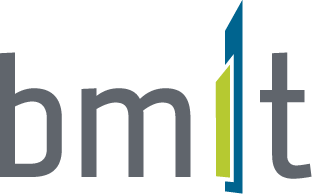In April, we participated in a trip to Japan with a Thüringen delegation and were able to interact with the startup communities in Osaka and Tokyo, which were impressive. In the last 5–10 years the Japanese startup ecosystem has exploded in size and greatly improved in quality, as working for a Japanese conglomorate is no longer seen as the only esteemed career path. In Japan, as in many parts of the globe, it has become en vogue to found a startup.
This trip to Japan crystalized our view that the proliferation of startups (often very similar startups) around the world has been exponential in the last years, notwithstanding the pandemic and geopolitical wars and conflicts. Information and, even more importantly, ideas are traversing the globe at light speed with very little friction. This extremely rapid and easy access to new ideas, no matter where they emerge in the world, creates tremendous value for humanity and is spuring innovation on an unprecedented level. While this development is awe-inspiring, it also means that any idea that can be easily replicated will be replicated. Importantly, for startups and investors it dramatically increases the premium on innovations that are truly difficult to copy or emulate.
While there can be many forms of protection from this far-reaching global competition, such as jurisidictional laws (GDPR, for example) or the need for some proximity to your customers, many innovative businesses have easily transportable or replicable innovations. For example, we view many AI-application-based business models as being highly-innovative but also suceptible to replication or having their product become a tool/feature in the large tech platforms´ offerings.
In Thüringen, we predominently have startups that possess truly groundbreaking innovations that are patentable and protectable to a large degree. Of course, having a protected innovation is just the first step in building a sustainably successful business. However, having this protectable foundation gives bm|t the confidence to invest capital and other resources to build the business, or to further develop the innovation to the point where an attractive acquistion is likely.
Thüringen startups often have a hardware (physical product/technology) base or component to their innovations. And while it is true that the hardware segment of the startup world often gets neglected by classic VC investors because “hardware is hard”, over the long-term, hardware often offers some valuable protection. Thus in the longer run, these hardware-based models are often not as “hard” as having a business that is vulnerable to quick market entry of well-financed competitors from anywhere in the world, as many purely software-based business models are.
Essentially, for both startups and investors, interesting innovations themselves are no longer enough. Innovations must also be protectable and extremely hard to replicate in order to make a startup attractive for investment. We are fortunate to be investing in Thüringen – an innovation ecosystem, which offers meaningful and protectable innovations. Our role as a committed investor is to assist Thüringen startups in transforming these impressive innovations into valuable, sustainably successful companies.
Your bm|t Team

